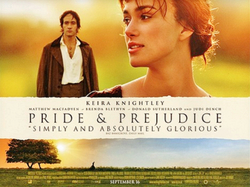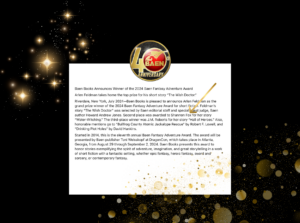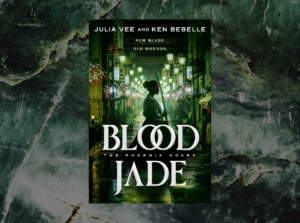The ago old debate for bibliophiles and cinephiles and lay-people alike is a question not unlike the chicken and the egg paradox: which do you prefer, the novel or the film? It is a question that has inspired a war with no end in sight. One must necessarily be less awesome than the other. Bibliophiles throw their hat in with the novel and cinephiles, I suppose, root for the film.
I’m purposing an idea that might be a tad radical: Novels and films aren’t comparable. They simply aren’t. They’re different mediums with different rules. Novels and films are more complementary than they are rivals.
As a film studies student and movie-goer, I’ve found reading the novel/short-story upon which the film is based enriches my enjoyment of the film. I enjoy seeing what the director does with the latent material, what they choose to include and what they leave out. What it comes down to is that they’re boiling down many hours of material into a 2 hour easily digested film. And this is a good thing.
The BBC made Pride and Prejudice into a mini-series with a run time of 300 minutes. 300 minutes= 5 hours. I have seen part of this miniseries, but never the whole thing. I frankly prefer the Keira Knightley version. Yes, go ahead and spit on me. The main problem with this is that Pride and Prejudice isn’t a horrendously long book to begin with (George R.R. Martin, I’m looking at you). So what it boils down to is a complete and total re-hash of the book. That’s it. And what would I rather do in those five hours? Read the novel.
Since I brought it up, let’s move to Martin’s HBO mini-series. I read the first novel and I recently started watching the first season of the mini-series. In the case of Martin, I would argue that this novel is best served by a mini-series. Each one is somewhere around one thousand pages each- that’s a lot of material to condense into a two hour film. And what is more, the story is so complex since we’re constantly moving in and out of storylines that it would be a complete and utter failure as anything, but a miniseries. Even so, the miniseries isn’t just a rehash of the novel. Cuts occur, creative liberties are taken, etc. But this makes sense. I see little point to sitting down to something that is an utterly faithful copy of the novel. You took the time to read the book…why do you need to take the time to sit on your ass and do it again, albeit in a less intellectually-stimulating fashion?
I realize I’ve been talking mainly about mini-series, but my true objective is to deal with film. Fair enough. Let’s start with an example of something that is too faithful to its novel origins. Twilight. The first one. I can’t bring myself to sit through any of the others. I was vaguely interested in seeing the fourth one, but the trailer just killed me and I couldn’t do it. The main problem with the movie, to my mind, is that it’s too faithful. Now, how can that be a bad thing? How can you end up with a worse film than the novel if you just copy the novel? The problem with being so faithful is that you end up conflating the mediums. The dialogues in Twilight, while passable on the page, sounds utterly ridiculous and comical coming out of the mouths of real people.
Harry Potter, while yet another pop culture phenomenon, is a series that got it right. While many people were mad about things they skipped/left out, I think what we were left with in each film was the purest escence of what the story is about. Rowling has seven hundred or so pages in each book to roll around in the wonderful world of Hogwarts. And we love her for it. But that it also why they built a theme park. So we don’t have to watch seven hundred pages worth of material.
In the end, what happens between films and novels is an attempt to create something that is the same, but different. And that is more than okay.






